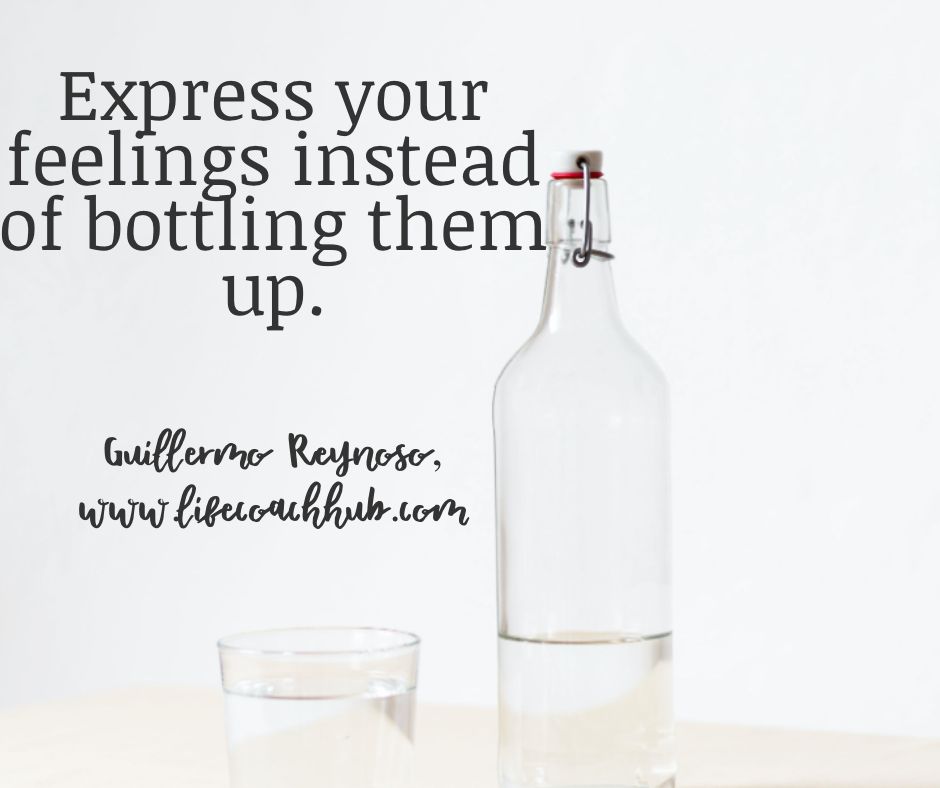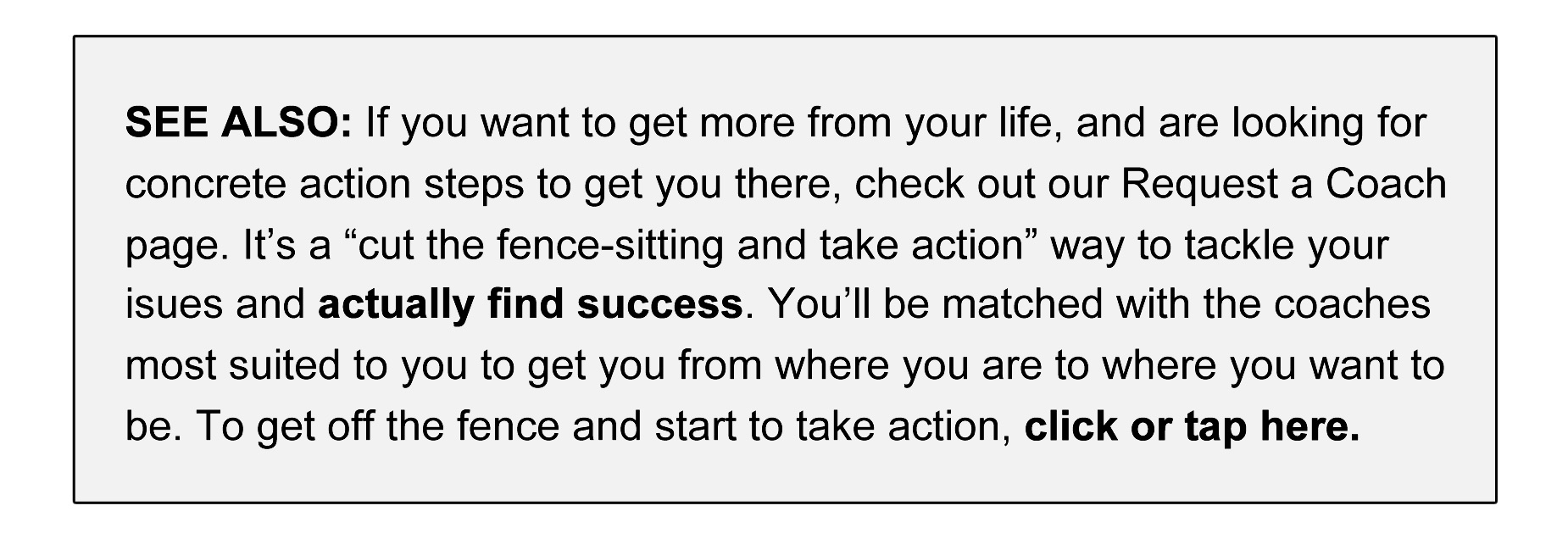
Stress is a part of your life
As a Clinical Psychologist and stress coaching trainer, I come across what is "floating" on the subject of stress management and burnout prevention and is the term "stress-free". This is neither possible nor desirable. STRESS is part of the survival and security mechanism of living beings. Stress is what prepares us physically and intellectually for the response to "Run or fight" so none of us should strive to "be stress-free through everyday life "or for a stress-free life.
It is realistic to know that stress is part of our life and that we must understand that what causes health damage is not the so-called emergency or survival stress, but continuous stress. In this sense, "stress under control" instead of "without stress" is a paradigm shift away from the deception of viability towards realism, humility, and possibly even gratitude in the face of our finite humanity. We hope that this guide can give you suggestions in this direction so that you can at least reduce personal stress as well as control the mechanisms that will affect your physical and mental health.
Managing stress
When describing how we can manage stress constructively, the terms stress coping, stress management, and burnout prevention are often mentioned. In advance:
There is no general definition. The point of view presented here is intended to provide a better understanding of the various concepts and ideas.
- "Stress management" is the most frequently used term. However, this often means different strategies and approaches.
- "Coping with stress" in the literal sense and, therefore, in the most restricted sense, would be dealing with stressful situations, that is, successful management.
Successful would mean at least no harm to health, possibly even a positive result. A positive result could be passing an exam, but also clarifying positions in a difficult conversation. Managing stress should mean reducing stress from the start, managing stress when necessary, but also using stress consciously and also preparing for future stressful situations, whether through a different attitude, whether through balance or of relaxing. The "prevention of exhaustion" brings another dimension: not only should stress be avoided in individual cases, but a possible drastic consequence of permanent stress, exhaustion.
Prevention of burnout often seems to have less to do with daily stress related to the world of work and more to do with dealing with the workload. Burnout means "Burning" refers to the extinguished energy of an originally enthusiastic person.
Stress is useful
This brings us to the second point that stress is really helpful.
Actors name the correct level of stress in front of the camera or in front of an audience for example "stage fright" or in German "Lamp fever" and does not mean this negatively. Stage fright helps them focus on the point and play the role played optimally.
Competitive athletes also benefit from positive stress by being competitive. Stress has served in human development.
Exactly this: in case of danger, the body prepares to flee or fight by releasing stress hormones.
Ready for alarm. The man was prepared to fight, flee or at least carefully observe the current situation. The stress reaction lasted only a few seconds to minutes, then the hormones could break down again and the physiological and psychological response elicited in response to these hormones would return to the original state. When in my career within the Fire Service an alarm arose, the body prepared to fight while sharpening the sight, the ear, increased our energy level, agility, muscle capacity, reflexes as well as the ability to perceive and intellectual response. This lasted during the service and ended by finishing it. The rest of the time we did not think about this service or the next service so there was no more unnecessary or continued Stress. When this promise was broken and the Stress was continued my colleagues came to develop Post-traumatic Stress Syndrome but this is another topic.
So we can now define that in our life there is always a "continuum", that is, a pendulum that moves from the negative to the positive and in the middle of it, let's say the "normal. If we put it on the subject of health today" normal "we are without affectations but in a few days we can have the flu and go to the "negative" point and in a few days we will be returning to "normal" health and after that, we could have a few days of intense activity and reach the "positive" point.
And this as we have all experienced is always repeated.
Strategies against stress
Three starting points for stress management
To minimize unwanted stress, there are three points on which we can base ourselves.
First starting point: reduce stressors
So that stress does not arise in the first place, we can try to eliminate stressors or at least reduce their effects. If you get up late in the morning, then you may end up under time pressure. If, on the other hand, you have enough time in the morning, there is no time pressure.
Why do we continue in stressful situations so often? First of all, every change has not only a benefit but also a price. If we want to have enough time, we can no longer stay in bed in the morning, but we have to get up. Humans are generally slow when it comes to change. We react to impending disasters, but otherwise, we just try to maintain our old patterns. This generally makes sense because well-established processes are helpful in "saving energy." To develop new patterns to avoid stressful situations, we need motivation, a decision, and repetition.
Second starting point: coping with stress
When we are already in a stressful situation, it is about how we can overcome it and manage it successfully. The old advice "take a deep breath" is still up to date. There are still several motivating sentences that can help us to reduce the level of stress a bit, e.g. "I've done and done something like this many times," "I'm well prepared," or "I don't have to do it perfectly." The difficult thing is that in a situation in which we are stressed to the maximum, that is, tense, we must calm down and relax a little. So that's it. Supreme discipline in stress management.
And finally the 3rd starting point: use compensation
If you are already irritated or tense in a stressful situation, excessive demands are pre-programmed. On the other hand, if we go through everyday life in a relaxed and balanced way, we can better deal with stressors and better cope with stressful situations. A famous example is sports after work.
What happens in high-stress stages when the life, the economic future, the well-being of the family, the health or the life of the person or family is in the prolonged threat? or when there are losses of high appreciation such as violent divorce, death or incurable illness of the couple, the sudden death of the parents, death or incurable illness of the children.
When something bad happens, people feel, think, and act in a very specific way. The body also reacts to typical events with bad events. When these changes last for an unusually long time, for example at home, while playing, when making appointments with friends or at school or at work
What is a bad event?
The bad events we are talking about are called "traumatic events" or "trauma". This means every event in which the own life or the life of another person is in danger, or in which one himself or another is physically or mentally injured. In such an event you usually feel great fear, horror, and helplessness. Examples of traumatic events are accidents, physical violence, sexual abuse, fires, natural disasters, or the death of a loved one. You can experience traumatic events yourself, observe them in others, or get told about them.
What do traumatic events trigger in us?
When someone experiences, observes or learns of a traumatic event, they usually feel terrible afterward. This is a normal response to an abnormal event. In some people, this feeling subsides after a while and disappears again at some point. For some, however, this feeling can last a very long time. This is called a "post-traumatic stress disorder".
What problems can arise in these areas?
- Reliving: You can have thoughts, memories, pictures, or dreams of the traumatic event, although you don't want to. Sometimes you feel like you are experiencing the traumatic event again, or you hear, smell or taste things from this situation. If you experience something that reminds you of the traumatic event, you may suddenly feel sad, frightened, irritated, or anxious, or you may experience stomach pain or trembling.
- Avoidance: Some people don't want to go to places or meet people who remind them of the traumatic event. It may also be that they don't think about it or talk about it and don't want the uncomfortable feelings that trigger the memories of the event in them. Therefore, they may avoid conversations, activities, places, people, or things related to the traumatic event.
- Bad mood and thoughts: Some people cannot remember what happened or parts of it. They don't feel like doing things they used to like, don't want to do anything anymore, and don't want to meet friends anymore. Sometimes they no longer believe that they can fulfill their wishes and achieve their goals, or they think that the world is no longer a safe place or that they are to blame for what happened. It is also possible that they can no longer feel all feelings equally well - for example, they can no longer be as happy as they used to be or they no longer feel close to other people. After all, they may feel anxious or angry all the time, or be ashamed of what happened to them.
- Physical overexcitation: After a traumatic event, the body has to learn again that there is no longer any danger. Because of this, some people are unable to sleep well after a traumatic event or often wake up at night. It can also happen that they can no longer concentrate well or forget things. Sometimes they are more annoyed and angry or more easily frightened. It is also possible that you now have headaches or abdominal pain more often, feel tense, and "constantly on guard".
What else is important?
As I said, people react differently to traumatic events. Everyone thinks, feels, and behaves differently. They are normal reactions to abnormal events.
In therapy, we will help you and make sure that the exercises that we do together fit your problems perfectly. Therapy can help you feel better again soon.
- If you can’t avoid a stressful situation, try to alter it. Often, this involves changing the way you communicate and operate in your daily life.
- Express your feelings instead of bottling them up. If something or someone is bothering you, be more assertive, and communicate your concerns in an open and respectful way. If you’ve got an exam to study for and your chatty roommate just got home, say upfront that you only have five minutes to talk. If you don’t voice your feelings, resentment will build and the stress will increase.
- Be willing to compromise. When you ask someone to change their behavior, be willing to do the same. If you both are willing to bend at least a little, you’ll have a good chance of finding a happy middle ground.
- Create a balanced schedule. All work and no play is a recipe for burnout. Try to find a balance between work and family life, social activities and solitary pursuits, daily responsibilities and downtime.
- Reframe problems. Try to see stressful situations from a more positive perspective. Rather than getting mad at a traffic jam, look at it as an opportunity to pause and regroup, listen to your favorite radio station, or enjoy some time alone.
- Look at the whole picture. Take a perspective of the stressful situation. Ask yourself how important it will be in the long run. Will it matter in a month? One year? Is it really worth getting mad? If the answer is no, focus your time and energy elsewhere.
- Adjust your standards. Perfectionism is a major source of avoidable stress. Stop preparing yourself for failure by demanding perfection. Set reasonable standards for yourself and others, and learn to accept "good enough."
- Practice gratitude. When stress depresses you, take a moment to reflect on all the things you cherish in your life, including your own positive qualities and gifts. This simple strategy can help you keep things in perspective.
- Accept. Some sources of stress are unavoidable. You cannot prevent or change stressors, such as the death of a loved one, a serious illness, or a national recession. In such cases, the best way to deal with stress is to accept things as they are. Acceptance can be difficult, but in the long run, it is easier than criticizing a situation that cannot change.
- Don't try to control the uncontrollable. Many things in life are beyond our control, particularly the behavior of other people. Instead of stressing about them, focus on the things you can control, such as how you choose to react to problems.
- Seek the good. When faced with significant challenges, try to see them as opportunities for personal growth. If your own bad decisions contributed to a stressful situation, reflect on them, and learn from your mistakes.
- Learn to forgive. Accept the fact that we live in an imperfect world and that people make mistakes. Let go of anger and resentment. Free yourself of negative energy by forgiving and moving on.
- Share your feelings. Expressing what is happening can be very cathartic, even if there is nothing you can do to alter the stressful situation. Talk to a trusted friend or make an appointment with a therapist.
- Move around. When you're stressed, the last thing you probably want to do is get up and exercise. But physical activity is a great stress reliever, and you don't have to be an athlete or spend hours in a gym to experience the benefits. Exercise releases endorphins that make you feel good, and can also serve as a valuable distraction from your daily worries.
Exercising to get your mind off stress
While you will get the most benefit from exercising regularly for 30 minutes or more, it is okay to gradually increase your level of fitness. Even very small activities can add up over the course of a day. The first step is to get up and move. Here are some easy ways to incorporate exercise into your daily schedule:
- Put on music and dance
- Take your dog for a walk
- Walk or bike to the grocery store
- Take the stairs at home or at work instead of an elevator
- Park your car in the furthest place from the lot and walk the rest of the way
- Play ping pong or an activity-based video game with your kids.
The stress-busting magic of mindful rhythmic exercise
While just about any form of physical activity can help burn away tension and stress, rhythmic activities are especially effective. Good choices include walking, running, swimming, dancing, cycling, tai chi, and aerobics. But whatever you choose, make sure it’s something you enjoy so you’re more likely to stick with it.
While you’re exercising, make a conscious effort to pay attention to your body and the physical (and sometimes emotional) sensations you experience as you’re moving. Focus on coordinating your breathing with your movements, for example, or notice how the air or sunlight feels on your skin. Adding this mindfulness element will help you break out of the cycle of negative thoughts that often accompany overwhelming stress.
- Take time to have fun and relax. Beyond a take-control approach and a positive attitude, you can reduce stress in your life by creating time for "me." Taking care of yourself is a necessity, not a luxury. If you regularly make time for fun and relaxation, you will be in a better place to handle life's stressors.
- Reserve free time. Include rest and relaxation in your daily schedule. Do not allow other obligations to invade. This is your time to take a break from all responsibilities and recharge your batteries.
- Do something you enjoy every day. Take time for leisure activities that bring you joy, whether it's stargazing, playing the piano, or working on your bike.
- Keep your sense of humor. This includes the ability to laugh at yourself. The act of laughing helps your body fight stress in several ways.
- Do a relaxation practice. Relaxation techniques such as yoga, meditation, and deep breathing - later I include some tips for progressive muscle relaxation and breathing techniques - activate the body's relaxation response, a state of rest that is the opposite of the response of fight or flight or mobilization stress. As you learn and practice these techniques, your stress levels will decrease and your mind and body will become calm and focused.
- Maintain balance with a healthy lifestyle. This advice I know well causes some resistance in my therapies because the subject implies a change of habits besides that it also implies physiological aspects such as the receptors of certain substances in the organism as well as the release of substances reward by the organism. There are techniques in Psychotherapy and Pharmaceuticals that help achieve this change of habits but ALWAYS and when you are convinced that changing habits will get you a higher reward.
In addition to regular exercise, there are other healthy lifestyle options that can increase your resistance to stress.
- Eat a healthy diet. Well-nourished bodies are better prepared to deal with stress, so keep in mind what you eat. Get your day off to a good start with breakfast and keep your energy and mind clear with balanced, nutritious meals throughout the day.
- Reduce caffeine and sugar. The temporary "highs" that caffeine and sugar provide often end with a breakdown in mood and energy. By reducing the amount of coffee, soda, chocolate, and sugar snacks in your diet, you will feel more relaxed and sleep better.
- Avoid alcohol, cigarettes, and drugs. Self-medication with alcohol or drugs can provide an easy escape from stress, but relief is only temporary. Do not avoid or mask the problem in question; deal with problems head-on and with a clear mind.
- Get enough sleep. Adequate sleep feeds your mind and body. Feeling tired will increase your stress because it can make you think irrationally.
Learn how to relieve stress at the moment
When you're exhausted from your morning commute, stuck in a stressful meeting at work, stuck in routine at home, harassed by children's activity, or frustrated by another argument with your spouse, you need a way to control your stress levels in this moment. That's where quick stress relief comes in.
The quickest way to reduce stress is to breathe deeply and use your senses (what you see, hear, taste, and touch) or through a relaxing movement. By viewing a favorite photo, smelling a specific scent, listening to a favorite piece of music, hugging a pet, for example, you can quickly relax and focus. Of course, not everyone responds to every sensory experience in the same way. The key to quick stress relief is to experience and discover the unique sensory experiences that work best for you.
Practice empathy and patience, in crowded situations, little interpersonal space, the crisis of any kind, other people are also on edge, and their reactions could be exaggerated and even irrational. Avoid acting on the same level, do not mention words like relax, calm down, be centered, mature and the like. Let the peak of the answer disappear and try to take the issue if it is important in another way and ALWAYS remain calm. If the topic has no significance, just leave it aside.
How to stop worrying
Worries, doubts, and anxieties are a normal part of life. It is natural to worry about an unpaid invoice, an upcoming job interview, a global crisis of any kind or a first date. But "normal" worry becomes excessive when it is persistent and uncontrollable. You worry every day about "what if" and in the worst case, you can't get anxious thoughts out of your head and it interferes with your daily life.
Constant worry, negative thinking, and always expecting the worst can affect your physical and emotional health. It can weaken your emotional strength, make you restless and nervous, cause insomnia, headaches, stomach problems, and muscle tension, and make it difficult to concentrate at work or school. You can get your negative feelings out of the people closest to you, self-medicate with alcohol or drugs, or try to distract yourself by zoning in front of the screens.
Chronic worry can also be a major symptom of Generalized Anxiety Disorder (GAD), a common anxiety disorder that involves tension, nervousness, and a general feeling of restlessness that colors your entire life.
If you're riddled with exaggerated worries and tensions, there are steps you can take to turn off anxious thoughts. Chronic worry is a mental habit that can be broken. You can train your brain to stay calm and look at life from a more balanced and less fearful perspective.
Why is it so difficult to stop worrying?
Constant worry can come at a high cost. It can keep you awake at night and make you tense and nervous during the day. And even though you hate feeling like a nervous mess, it can still be very difficult to stop. For most of those who worry chronically, anxious thoughts are fueled by beliefs, both negative and positive, that worry you:
Negative beliefs about worry. You may believe that your constant concern is harmful, that it will drive you crazy or affect your physical health. Or you may worry that you will lose all control over your worry, that it will take over and never stop. While negative beliefs, or worrying about worrying, increase your anxiety, and continue to worry, positive beliefs about worry can be just as damaging.
Positive beliefs about worry. You may believe that your concern helps you avoid bad things, prevents problems, prepares you for the worst, or leads you to solutions. Maybe you say to yourself that if you keep worrying about a problem long enough, you can eventually solve it? Or maybe you're convinced that caring is responsible or the only way to make sure you don't overlook something? It's hard to break the habit of worrying if you think your concern has a positive purpose. Once you realize that worrying is the problem, not the solution, you can regain control of your worried mind.
How to stop worrying tip 1: Create a daily "worry" period
It is difficult to be productive in your daily activities when anxiety and worry dominate your thoughts and distract you from work, school, or home life. This is where the strategy of postponing concerns can help. Instead of trying to stop or get rid of an anxious thought, give yourself permission to have it, but stop thinking about it until later.
- Write your concerns. If an anxious thought or concern comes to mind during the day, take a brief note and move on with your day. Remember that you will have time to think about it later, so there is no need to worry about it now. Also, writing down your thoughts, on a pad or on your phone or computer, is a much harder job than just thinking about them, making your concerns more likely to lose their power.
Review your "list of concerns" and post:
- A choice of Can is solved or Not solvable.
- A possible solution or acceptance and mitigation of concern.
By examining your concerns in this way, it will often be easier for you to develop a more balanced perspective. And if your worries no longer seem important, just shorten your worry period and enjoy the rest of your day.
Disrupt the cycle of concern
If you worry excessively, it may seem like negative thoughts repeatedly pop into your head. You may feel like you are out of control, going crazy, or about to run out under the weight of all this anxiety. But there are steps you can take right now to interrupt all those anxious thoughts and take time off of unrelenting worries.
Get up and move. Exercise is a natural and effective anti-anxiety treatment because it releases endorphins that relieve tension and stress, increase energy, and improve your feeling of well-being. Even more importantly, by really concentrating on how your body feels as it moves, you can interrupt the constant flow of worry that runs through your head. Pay attention to the sensation of your feet hitting the ground while you walk, run or dance, for example, or to the rhythm of your breathing, or the sensation of the sun or wind on your skin.
- Take a yoga or tai chi class. By focusing your mind on your movements and breathing, practicing yoga or tai chi keeps your attention on the present, which helps clear your mind and lead to a relaxed state.
- Try meditating. Meditation works by shifting your focus from worrying about the future or thinking about the past to what is happening right now. By being fully involved in the present moment, you can interrupt the infinite cycle of negative thoughts and concerns. And you don't need to sit cross-legged, light candles or incense, or sing. Just find a quiet and comfortable place and choose one of the many free or cheap smartphone apps that can guide you through the meditation process.
- Practice progressive muscle relaxation. This can help you break the endless cycle of worry by focusing your mind on your body rather than your thoughts. By alternately tightening and then releasing different muscle groups in your body, you release muscle tension in your body. And as your body relaxes, your mind will follow.
- Try to breathe deeply. When you worry, you get anxious and breathe faster, which often leads to increased anxiety. But by practicing deep breathing exercises, you can calm your mind and calm your negative thoughts.
Instructions for belly breathing
When we're excited we sometimes forget to breathe. Or just take short, shallow breaths that don't give our body as much oxygen as it needs.
Abdominal breathing helps to feel relaxed and calm.
Abdominal breathing means breathing in slowly and deeply as the abdomen and lungs fill with air. You can see how your stomach bulges when you inhale. Then exhale slowly and watch your belly sink again.
Watch closely as the air flows in and out of your body.
A fun game with abdominal breathing:
- Lean back comfortably or lie on your back.
- Imagine that your belly is a balloon that fills with air as you breathe in, and from which the air escapes as you breathe out.
- Watch your belly get bigger and smaller as you breathe. You can also put a cuddly toy on yours
- Lie on your stomach and try to lift it up as slowly as possible when inhaling and slowly lower it again when you exhale.
- You can also do abdominal breathing with someone you like. Then you can try out which of you can breathe in deeper and more slowly.
​Instructions muscle relaxation
You can do this simple relaxation exercise regularly at home to relax more and more easily over time. At some point, you will even be able to do this relaxation exercise while others are there and without them noticing. Practice makes perfect - so it's best to start right away!
Sit down easily and comfortably. If it is easier for you, you can also practice lying down first. If you want, close your eyes and concentrate entirely on your body: feel your heartbeat and your breathing. Breathe in and out evenly.
Now, first, tighten your hands by clenching them into fists and squeezing them tightly. Imagine you wanted to squeeze a lemon. Hold the tension for 7 seconds and then let go. Feel how your hands feel now. Do you notice the difference between tension and relaxation? Relax for 30 seconds. Then repeat the exercise.
Now tighten all body parts one after the other for seven seconds and relax them for 30 seconds:
- Tighten your arms by showing your muscles like a strength athlete and then relax them again.
- Next, contract your shoulders and back by raising your arms, making yourself very tall and stretching, and then relaxing again.
- Then tense your stomach. Make sure it is firm. Then relax again.
- Tighten your buttocks by squeezing your buttocks tightly and then relax again.
- Next, stretch your legs by stretching them wide. Then relax them again.
- Connect your feet last. To do this, pull your toes towards your legs. Finally, relax again for half a minute.





























COMMENTS